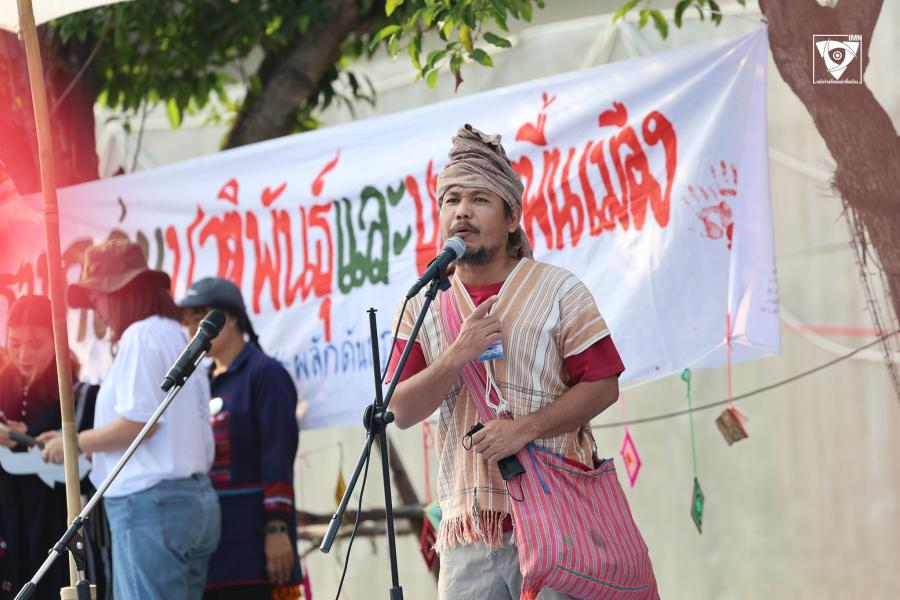Nan province is in the upper north of Thailand on the border with Laos and is home to large populations of tribal peoples.
On June 19th of this year, lowland ethnic Thai from Chiang Klang, together with Royal Forestry Department officers, local police, and Border Patrol Police, cut off access to a road leading into an orchard and farm area in Nan province. The blocked road is used by both lowland Thai and ethnic minorities (mostly Hmong) to access the orchards and forest; the roadblock prevented upland villagers from traveling into the lowlands (and vice versa).
Once the road was blocked, a large group of lowland Thai entered the Hmong lychee orchard and cut down roughly 2,000 trees (in 12 orchards), burning down field houses, water pipes and water storage units, and destroying everything in the orchard areas. The orchard, formerly resembling a forest of large trees, was completely destroyed.
When Hmong villagers approached the local police station to ask for help, the police refused to accept the case or to arrest the lowlanders who had destroyed the orchard. The police warned the Hmong villagers that accusations against lowlanders would result only in Hmong arrests. A local district (ampur) officer told the villagers that they could make no accusations because they didn't see the people who cut the trees.
These occurrences make us very scared. We are being used as scapegoats. Hmong people cannot protect their rights because officers are biased ethnic lowland Thai.
The Forestry Department claims that mountain people cut down the forest, but this is not true. If you visit the area you will see that the forest trees were cut down a long time ago, some by various upland tribal groups, some by lowland Thai, and many by the commercial forestry sector with permission from the government.
Article copyright Cultural Survival, Inc.

